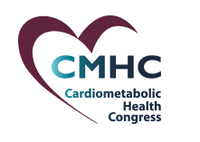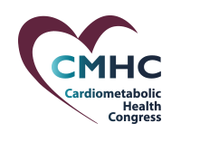
Cardiometabolic Health Congress (CMHC)
The global epidemic of metabolic syndrome, a constellation of cardiometabolic risk factors, and that of obesity, type 2 diabetes, atherosclerosis, chronic kidney disease, cardiovascular disease, and NAFLD/NASH, have become the modern-day health hazard across the world. Lifestyle factors, including a lack of physical activity and proper nutrition, as well as ...
read more ↘ smoking, can further exacerbate the impacts of cardiometabolic risk or disease, which is showing no signs of slowing down. Overall, the numbers are particularly striking. There are more than 463 million adults living with diabetes worldwide, and the number is expected to rise to more than 700 million by 2045.1 Furthermore, 232 million have undiagnosed diabetes with an additional 374 million having prediabetes.1 The increasing prevalence of overweight and obesity (now estimated to affect 2 billion adults, or nearly 30% of the world population), high cholesterol (>40% of the world’s population), and hypertension (>1 billion), together with type 2 diabetes (T2D), are some of the major drivers of morbidity and mortality worldwide.2-4 They affect multiple organ systems, including the heart, liver, and kidneys, spanning several disease domains and outcomes.
Although clinicians are learning more about the interconnections between these conditions and risk factors, the application of these principles to patient care remains in its infancy. As these diseases and risk factors exist in a continuum, they cannot be treated in silos, which is unfortunately what tends to happen in clinical practice. The Cardiometabolic Health Congress (CMHC) has been at the forefront of looking at the whole spectrum of cardiometabolic disease, including obesity, diabetes, lipids, hypertension, cardio-renal disease, and practical ways to address them. Through our live conferences and extensive online education platforms, we strive to synthesize and translate the latest cutting-edge medical research into practical clinical strategies for preventing, delaying, diagnosing, treating, and managing the whole spectrum of cardiometabolic disorders. The goal is to provide the medical community with evidence-based interventions that they can apply immediately in clinical practice to improve health outcomes and quality of life for the growing numbers of patients at increased cardiometabolic risk.
↖ read less
read more ↘ smoking, can further exacerbate the impacts of cardiometabolic risk or disease, which is showing no signs of slowing down. Overall, the numbers are particularly striking. There are more than 463 million adults living with diabetes worldwide, and the number is expected to rise to more than 700 million by 2045.1 Furthermore, 232 million have undiagnosed diabetes with an additional 374 million having prediabetes.1 The increasing prevalence of overweight and obesity (now estimated to affect 2 billion adults, or nearly 30% of the world population), high cholesterol (>40% of the world’s population), and hypertension (>1 billion), together with type 2 diabetes (T2D), are some of the major drivers of morbidity and mortality worldwide.2-4 They affect multiple organ systems, including the heart, liver, and kidneys, spanning several disease domains and outcomes.
Although clinicians are learning more about the interconnections between these conditions and risk factors, the application of these principles to patient care remains in its infancy. As these diseases and risk factors exist in a continuum, they cannot be treated in silos, which is unfortunately what tends to happen in clinical practice. The Cardiometabolic Health Congress (CMHC) has been at the forefront of looking at the whole spectrum of cardiometabolic disease, including obesity, diabetes, lipids, hypertension, cardio-renal disease, and practical ways to address them. Through our live conferences and extensive online education platforms, we strive to synthesize and translate the latest cutting-edge medical research into practical clinical strategies for preventing, delaying, diagnosing, treating, and managing the whole spectrum of cardiometabolic disorders. The goal is to provide the medical community with evidence-based interventions that they can apply immediately in clinical practice to improve health outcomes and quality of life for the growing numbers of patients at increased cardiometabolic risk.
↖ read less
- Events
- The Women's Cardiometabolic Health and Wellness Masterclass 2024
- COVID-19
- CMHC Spring
- Cardiovascular Disease
- Heart Failure/Hypertension Management
- Diabetes Management
- 2020 Annual CMHC Symposia
- CMHC Tsunami
- Lipid Management
- Addressing the NAFLD and NASH Epidemic
- Cardiometabolic Risk in Children and Adolescents
- The Nexus of Women's Health and Cardiometabolic Risk
- Nutrition for the Cardiometabolic Patient
- Cardiometabolic and Sleep Disorders
- 16th Annual Cardiometabolic Health Congress
- CMHC Spring 2022
CMHC Highlights on FDA Updates: What's New in Lipids, the Kidneys and Non-Steroidal Mineralocorticoid Receptor Blockers?
410 views
January 18, 2022
Comments 1
Login to view comments.
Click here to Login
16th Annual Cardiometabolic Health Congress











